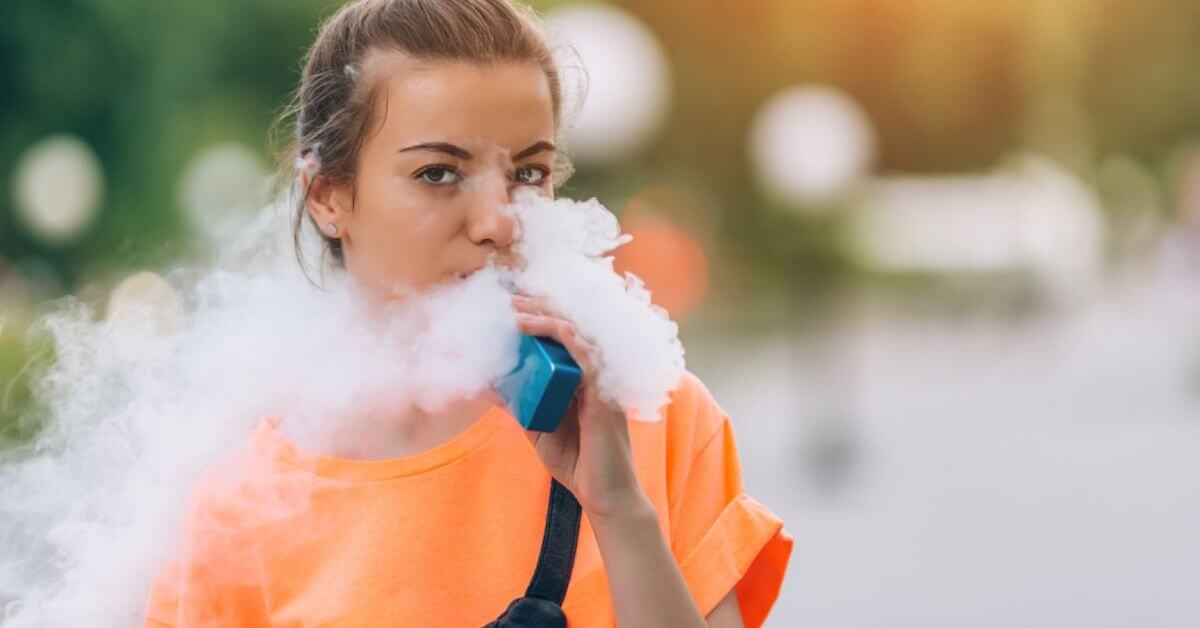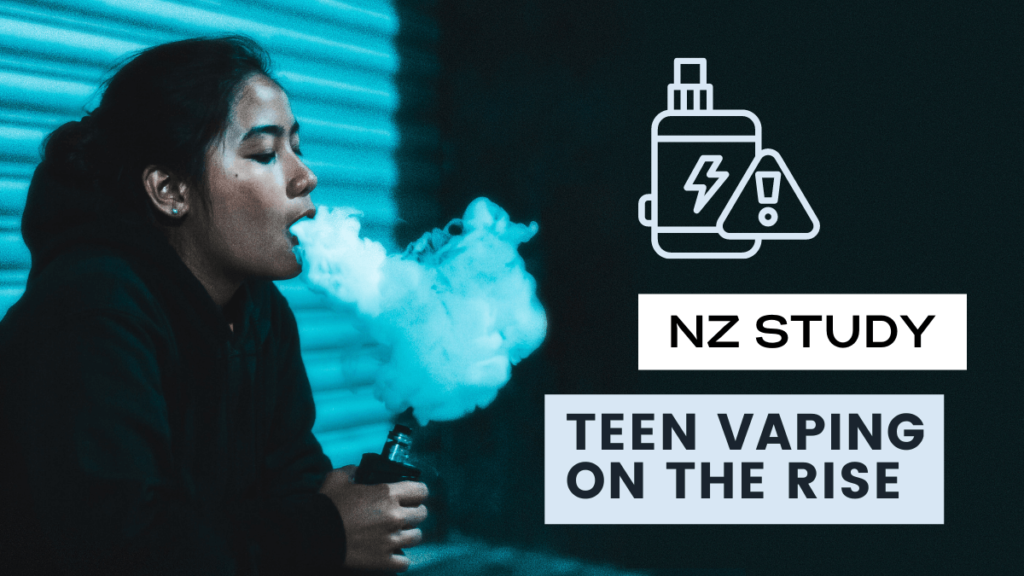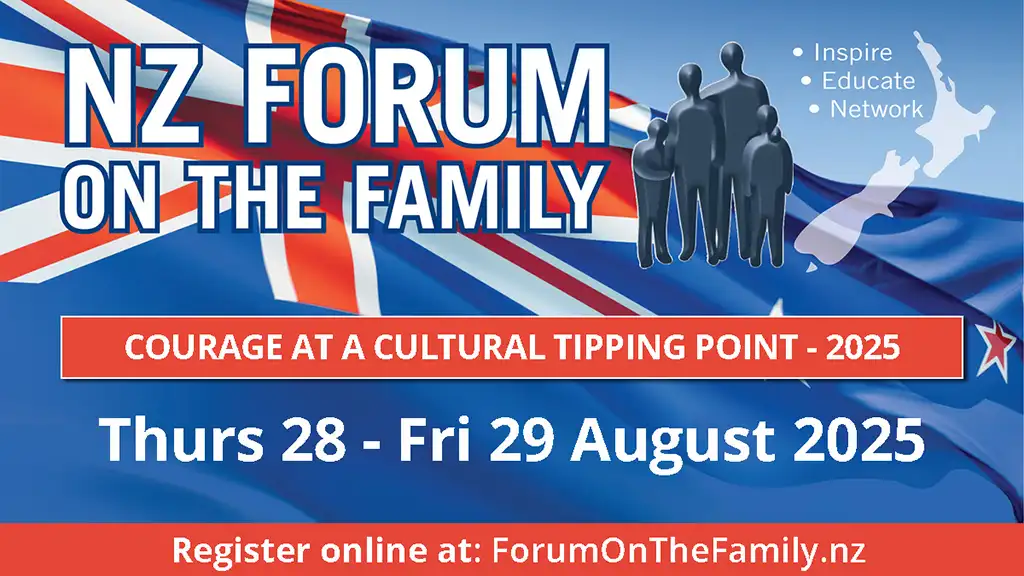The proliferation of vaping products is creating nicotine addiction among kiwi teens, with a new study finding more than a third of high school students have tried vaping and that they “more often or always use e-cigarettes with nicotine.”
According to researcher Dr Jude Ball, from the University of Otago, “the study found vaping to be two to three times more common than smoking among students.”
Numerous down-stream health problems will likely arise from this increased use of vaping amongst teens. Dr Ball says:
“since e-cigarettes have only been widely available for about 10 years and respiratory illnesses caused by exposure to toxic substances may only show up decades later, the impacts of long term use are still unknown. Recent reports found high risk of acute lung injury in vapers, as well as chronic risks to cardiovascular, respiratory and oral health.”
It’s also concerning that students started experimenting with vaping at a young age, with 22 per cent of Year 9 (13-14 yr old) students saying they had tried vaping.
Read the NZ Herald article here
Slick pod-style vaping devices, such as JUUL and Vuse, contain nicotine. These products, along with their clever marketing, are helping drive increased uptake by teens that ultimately lead to nicotine addiction.
“Juul is not a cigarette. It’s much easier than that. Through devilishly slick product design I’ll discuss here, the startup has massively lowered the barrier to getting hooked on nicotine. Juul has dismantled every deterrent to taking a puff.”
From the TechCrunch article “The tricks to addictive product design – how Juul made vaping viral to become worth a dirty $38 billion
Read the TechCrunch article here
It’s obvious that much more needs to be done to enforce new laws that restrict marketing and ban sales of vaping products to under 18s.
This study on vaping also highlights why legalising cannabis would be a disaster for young people in New Zealand. Big Marijuana has used vaping to hook kids into the drug. It’s one of the biggest products marketed by the industry towards youth in the US. It’s nothing short of a health disaster. #Say Nope To Dope





